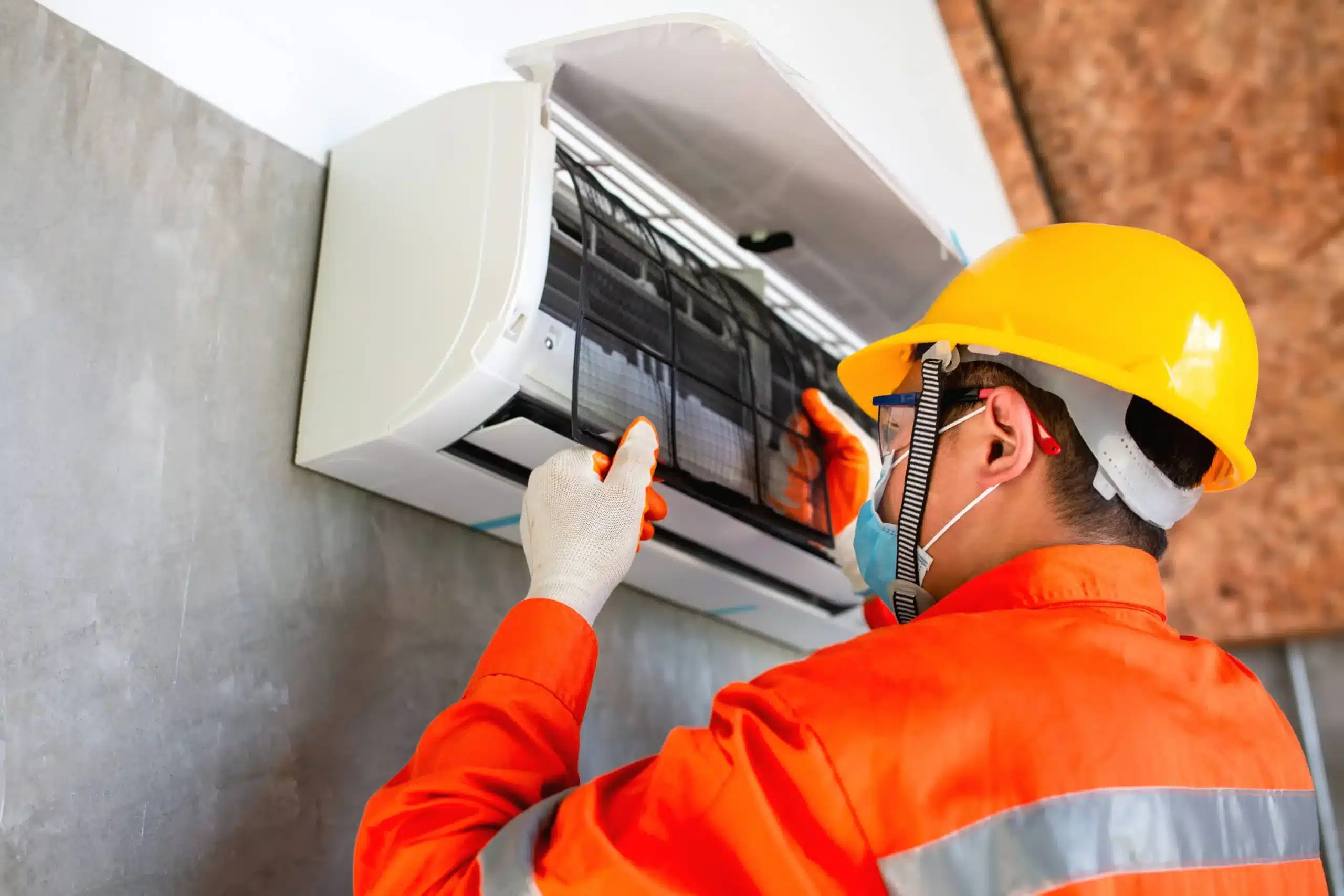With the COVID-19 pandemic on everyone’s mind and personal health being a primary objective as we navigate unchartered territory in our every-day lives, the HVAC industry is adapting too, and in many ways. The pervasiveness of the Coronavirus has prompted a greater demand for improved indoor air quality, and HVAC contractors are addressing this paramount need.
In the meantime, the commercial building is evolving to an increased level of intelligence. No longer limited to brick, mortar, and duct systems, the new materials being invested into commercial buildings span the technological gamut from improved sensors to full-on artificial intelligence (AI). HVAC equipment is also being updated, as well.
New products and installation procedures are changing how contractors approach their commercial customers. And with the added scrutiny of personal health habits, commercial contractors could find themselves scrambling to meet trending demands!
Safety Is the Number One Priority
Half vacant office buildings and other commercial structures across the U.S. have left building owners asking the question: “How do I keep the occupants safe in the midst of COVID-19?”
HVAC contractors have a vital role to play in answering this question. In fact, HVAC operation has been one of the industries most affected by the new normal surrounding COVID-19, according to Mark Pipher, vice president, and general manager of FacilityConneX.
Because of the close scrutiny on personal health, his company has identified three major trends in regard to indoor air quality and safety. They are increased fresh air, increased energy usage, and maintenance, as well as a shift in operations to meet environmental standards.
“Changing requirements are being placed on air handling units (AHUs), and there is a reevaluation of current AHU technologies happening in buildings,” Pipher said. “Commercial buildings must now pull in more outside air than ever before, increasing the amount of air turnover and conditioning needed to maintain a comfortable and safe environment for tenants. Many building owners are questioning whether or not their older AHUs will be able to manage this increased usage.”
Some building owners are putting into practice dedicated outdoor air systems (DOAS) in order to meet this demand, according to Robert LoForte, president of Veritas Solutions Group.
“DOAS can improve ventilation rates by increasing the amount of fresh air brought into a space, which enhances indoor air quality throughout the building,” LoForte said. “COVID-19 has accelerated the push to improve indoor air quality.”
As more outside air is being filtered through an HVAC system, there is more energy usage and more frequent maintenance necessities occurring, depending on the type of system being used.
“The incorporation of more outside air forces buildings to increase energy use for conditioning, either through the additional heating and cooling element or, as many are choosing to do, pushing the air through higher-grade MERV filters,” said Pipher. “Additionally, AHUs and filters are being cleaned more frequently to avoid bacteria, particle, and mold buildup.”
Energy Cost, Compliance
In essence, the definition of a high-performance building typically leans toward the building’s sustainable use of energy, which is connected to everything from the building envelope to HVAC, to lighting systems, to the indoor environment and air quality, according to LoForte. Increased run times and maintenance can consume a large amount of a building owner’s budget.
According to LoForte, his company is seeing a rise in the use of energy recovery chiller systems that can produce hot water as a byproduct of producing chilled water.
Meanwhile, experts at Daikin Applied offered their perspective on the latest trends for equipment choice and energy usage in high-performance buildings. These experts agreed that high-performance building factors in not only energy efficiency but also occupant comfort and indoor air quality.
“Buildings are using modern techniques, such as chilled beam systems, to operate their chillers at high water temperatures that reduce lift and improve energy efficiency,” said the group of experts. “We expect that high-efficiency buildings will use highly efficient HVAC with extended range capabilities that will use less energy than traditional chillers and will also eliminate the equipment from the chiller room, resulting in easier and simpler installation to the HVAC contractor.”
The Future of Buildings
Industry experts agreed that intelligent building solutions will become the standard and commercial buildings across the country will need to continue to adjust their operations to create comfortable and safe environments for occupants.
“To balance both safety and sustainability, buildings must be conditionally aware and constantly monitoring their operations at all times,” Pipher said. “Commissioning and retro-commissioning efforts can no longer be spread out once every three to five years to achieve this; they need to take place in real-time if a substantial impact on decarbonization is expected. Luckily, technology is here and is already improving operations in this space.”
LoForte, meanwhile, anticipates more intelligent air scrubbing technologies to be utilized to clean the air of carbon dioxide and volatile organic compounds.
“Some advanced air scrubbing technologies are able to reduce the need for outside air up to 80 percent, which can save buildings up to 30 percent in energy costs while reducing HVAC maintenance and pollution,” LoForte said. “We’ll likely see more systems that allow for full integration of all commercial building systems – from HVAC controls to fire alarms, security systems, occupancy monitoring, audiovisual, and more – allowing building managers to visualize their entire facility in one comprehensive dashboard.”
Improve Your Indoor Air Quality with Apollo Heating and Air Conditioning
At Apollo Heating and Air Conditioning, we know that your health and comfort matter most when it comes to the operation of your HVAC system. That’s why we are committed to keeping the air in all of your living spaces healthy and comfortable.
As a result of the Coronavirus (COVID-19) pandemic, Apollo Heating and Air Conditioning wants to share with you a product that pro-actively treats every cubic inch of conditioned air in your home or business.
Apollo’s In-Duct LED Air Purifier is a whole-home air purification system that reduces airborne and surface contaminants, viruses, and pollutants, all through bi-polar ionization.
What’s more, our HALO-LED whole-home air purification system makes the air in your home much cleaner and even safer for you to breathe.
Learn more by contacting Apollo Heating and Air Conditioning! Call us at (509) 396-COLD (2653).




